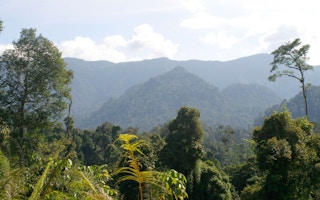The World Wide Fund for Nature’s (WWF) Heart of Borneo project took the spotlight at the B4E conference on Wednesday, which held talks leading up to the two-day summit in Jakarta.
The project is a collaboration WWF initiated with the three governments of Indonesia, Malaysia and Brunei, along with businesses that have a vested interest in the health of Borneo’s forests. It aims to conserve 22 million hectares of intact natural forest in the centre of Borneo.
Lessons learned from pilot projects from the Heart of Borneo will be used to inform new models for sustainable forest management that can be applied globally.
One of these lessons is that businesses will need to play a new role in order to make the rapid changes necessary for sustainable development.
Climate change has established a whole new playing field and the winners would be those who grabbed the opportunities offered by the new rules, said Ambassador for Norway, H E Eivind Homme.
“Fighting Climate change and fighting poverty must go together. We cannot have business as usual,” he added.
Forestry, Mining and Palm oil concessions cover 40 per cent of Borneo’s land area, of which only eight per cent are currently certified sustainable. With recent government sustainability policies in place and initiatives such as REDD+ , which provide funding to empower forest communities to reduce emissions from deforestation and forest degradation, Indonesia’s forest-dependent businesses have ample opportunities to join the green economy.
Indonesia just launched its Long-term Development Plan to 2025 and the National Priority and Action Plan, both of which aim to increase sustainable development and up the community participation level in the management of natural resources.
Indonesia’s ministry for the environment presented some of the measures being implemented.
“The government has learnt from the past and is addressing unsustainable production and consumption with policies that provide new fiscal incentives, including payment for environmental services, that reflect the true value provided by standing forests,” said the environment ministry official.
REDD+ projects provide additional opportunities to benefit both business and environment.
Norway saw Central Kalimantan, the first REDD+ pilot site, as a laboratory for the development of new resource management practices that will lift millions of people out of poverty. The private sector can thrive in this new environment, said Ambassador Homme. He added that Singapore-based palm oil company Golden Agri is now working with NGOs to change its formerly criticised practices, and he invited other companies to join Norway in this sustainability push.
“The Letter of Intent (for REDD+) is an opportunity. It will make Indonesia less vulnerable to Climate Change and create a new model for growth… It’s all good news for business,” he said.
Eco-Business.com’s coverage of the B4E Global Summit 2011 is brought to you by City Developments Ltd (CDL).






















